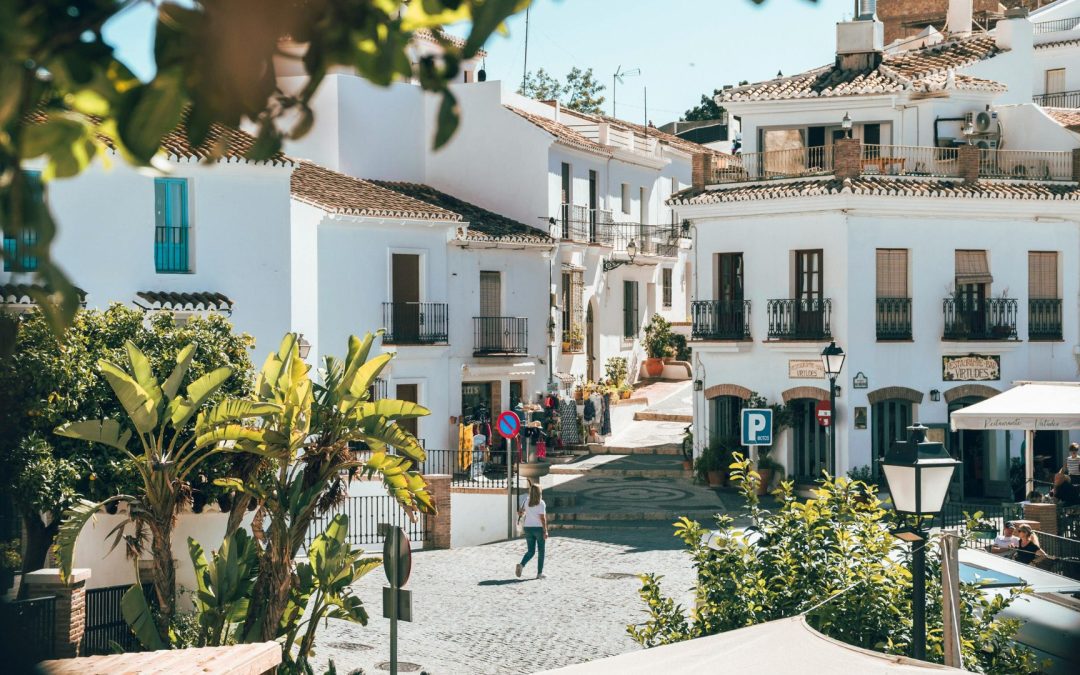Your up-to-date guide to navigating property buying requirements in Spain during the summer months.
Dreaming of owning a holiday home on the Spanish coast? Or planning a permanent move to the sun? Whether you’re an investor or a first-time buyer, purchasing property in Spain can be a smooth process—if you are properly prepared. And that begins with knowing exactly which documents you need.
This legal checklist offers a comprehensive overview of the documents to buy property in Spain, especially relevant during the summer months, when public offices often reduce their hours or close for annual leave. We also highlight the latest regulations and specific requirements for non-residents and international buyers.
Why Summer Requires Special Attention
Summer is a popular time for property searches in Spain. The weather is ideal, and many buyers schedule visits while on holiday. However, July and August are also months when government departments and notaries may have limited availability due to staff holidays. This can cause delays in essential procedures if your documents aren’t in order in advance.
Having a complete legal checklist for property in Spain ensures you avoid last-minute issues and enjoy a smoother buying process, even in the peak holiday season.
The essential Documents you need to buy property in Spain
Here is an updated list of the most important property buying requirements in Spain for summer 2025:
1. Valid Passport or National ID
All buyers must provide official identification. For EU citizens, a national ID card may suffice. Non-EU nationals must present a valid passport.
2. NIE Number (Número de Identidad de Extranjero)
This is the foreigner identification number required for any official transaction in Spain, including purchasing property.
Apply for your NIE well in advance, as processing times can stretch during the summer months. You can obtain it through:
- A Spanish police station
- A Spanish consulate in your home country
- Via a legal representative with power of attorney
TIP: At Albir Abogados, we can assist you in obtaining your NIE remotely to save time.
3. Proof of Financial Solvency
You will need to demonstrate the source and legality of your funds. Expect to provide:
- Recent bank statements
- Tax declarations
- Employment contracts or pension information
- Loan approval documents, if using a mortgage
Spanish law requires transparency in financial transactions to prevent money laundering. These checks are mandatory for both residents and non-residents.
4. Spanish Bank Account
While not a legal requirement per se, most property-related payments (including taxes and utilities) must be made from a Spanish bank account. Opening one early helps streamline the process.
5. Power of Attorney (optional but useful)
If you are not in Spain during the entire process, granting power of attorney to a Spanish lawyer (such as our team at Albir Abogados) allows us to:
- Sign contracts
- Obtain your NIE
- Open bank accounts
- Represent you before tax authorities
This is particularly valuable during summer, when appointments can be limited and being physically present is often inconvenient.
6. Preliminary Agreements and Proof of Reservation
Once you choose a property, the seller may request a reservation contract (Contrato de Reserva). To proceed, you’ll need:
- Passport or NIE
- Proof of payment for the reservation fee
- Buyer’s information (name, address, contact)
This contract typically reserves the property for a short period and is often followed by a deposit contract (Contrato de Arras).
7. Due Diligence Documents (Handled by your Lawyer)
Before completing the purchase, your solicitor will request and verify:
- Land Registry Extract (Nota Simple)
- Energy Performance Certificate
- Licences and planning permissions
- Certificate of no debts on the property (e.g. utilities, community fees)
These documents are crucial to protect your interests. Summer holidays may delay responses from local town halls or communities, so early action is vital.
8. Final Public Deed (Escritura Pública) and Notary Appointment
Once all is approved, the final step is signing the public deed of sale before a notary. Be aware that notary appointments in July and August should be booked several weeks in advance. Your solicitor will also coordinate:
- Payment of taxes (such as ITP or VAT)
- Registration of the deed with the Land Registry
Final Tips: Buying Property in Spain this Summer
- Start early: Begin preparing documents at least 6–8 weeks before your planned purchase.
- Work with a local solicitor: Spanish property law differs from other countries, and professional legal guidance avoids costly mistakes.
- Be flexible with dates: August is a semi-official holiday month in Spain, so notaries and offices may operate at half capacity.
At Albir Abogados, we specialise in helping international buyers navigate the legal checklist for property in Spain, with tailored support in English. We ensure your summer purchase is legally secure and stress-free.
New Legal Requirement: Rental Registration Number (NRA) Now Mandatory for Tourist Rentals
Planning to rent out your Spanish property this summer? As of 1 July 2025, under Royal Decree 1312/2024, all properties rented for short-term stays or as tourist accommodations must be officially registered and assigned a Rental Registration Number (NRA). This applies to any property advertised digitally—whether on Airbnb, Booking.com or similar platforms. The NRA ensures your rental complies with legal, tax, and safety standards, and must be visibly included in all online adverts. At Albir Abogados, in collaboration with TRES, we now offer a fast and fully managed NRA registration service, including personalised legal advice, issuance within 24 hours, and ongoing compliance support. Avoid fines, booking cancellations, and legal uncertainty— contact us today and let us handle the process for you.


